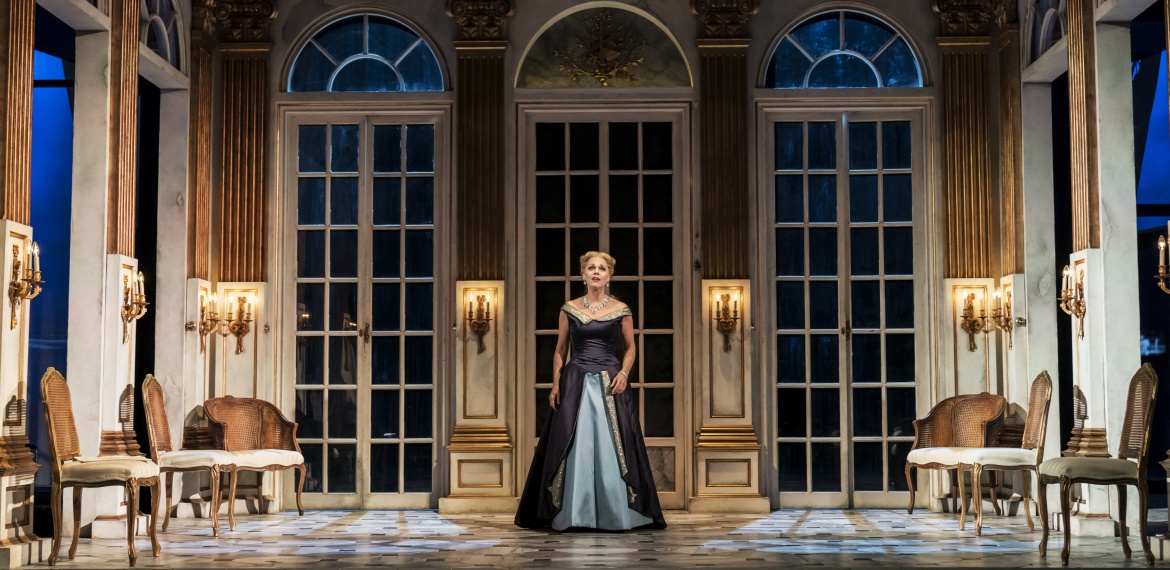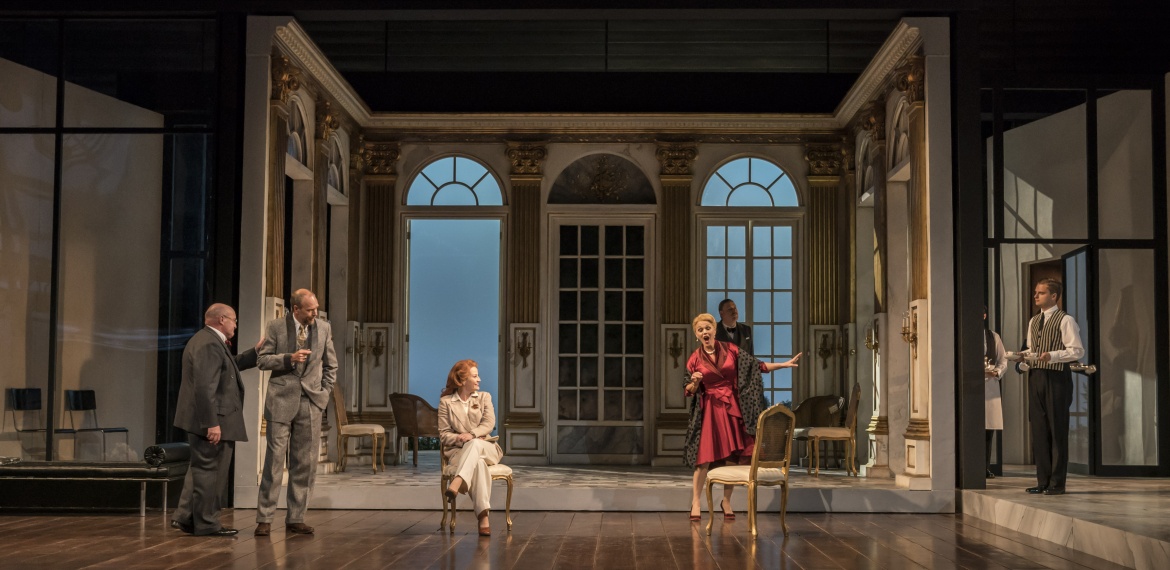Garsington Opera at Wormsley, Wednesday 20 June 2018
Tim Albery’s strikingly handsome new production moves the setting to the time the opera was first presented – the mid nineteen-forties. However there is no hint of a war in progress, no sense that this is an enclave ignoring a greater reality. For the artists gathered at the home of the Countess all that matters is art, and Richard Strauss explores the purpose of art in a world torn apart by war not through confrontation but the deft interplay of close personal relationships. It is this that makes the work not only such a joy to listen to but avoids any sense that these people are playing irrelevant games while everything else is in chaos. Tim Albery’s production frequently mirrors Die Meistersinger in its insistence on the relevance and importance of the arts to society as a whole. Art may be created in a hot-house atmosphere but it is essential to the whole of society, even if the male servants can’t quite see the point.
Douglas Boyd conducts the score with loving attention to detail and I can’t recall the Garsington Opera Orchestra on better form. The large pit at Wormsley can encompass late romanticism with ease and the outpouring of lush harmonies fill the house.
The young cast bring a sense of reality to the piece which is not always the case. Central to this is Miah Persson’s merry widow, has warmth and wit, gentle humour and glorious tone which carries all before her. Happily the rest of the cast are up to her standards. Sam Furness as composer Flamand is a strong contrast to Gavin Ring’s poet Olivier, and their highly contrasted styles bring clarity to their disagreements. Their rivalry is only topped by Andrew’s Shore earthy La Roche, constantly bringing us all back to the daily realities of the theatre.
The many smaller roles are taken with distinction but one can’t overlook Benjamin Bevan as the stoic Major-Domo who sings nothing until the last few minutes of the evening.
It would be easy to ignore the tiny part of Monsieur Taupe, the prompter, but when Graham Clark brings his years of experience and exemplary diction his brief scene is a memorable delight.


